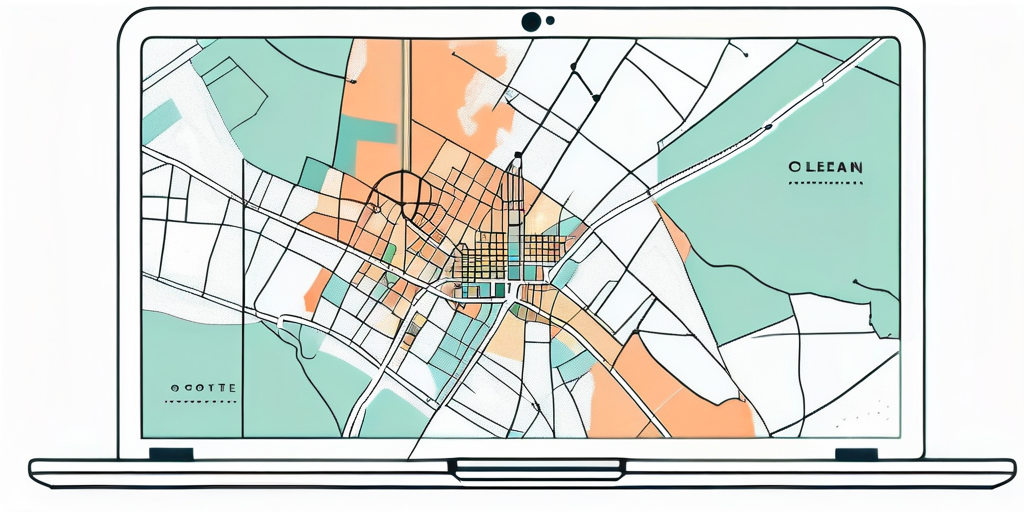Top Work from Home Jobs Near Me: Find Remote Opportunities in Your Area

Top Work from Home Jobs Near Me: Find Remote Opportunities in Your Area
In recent years, remote work has become increasingly popular. With advancements in technology and the changing landscape of the job market, more and more people are embracing the flexibility and convenience of working from home. Whether you're a stay-at-home parent, a digital nomad, or simply looking for a career change, there are plenty of work-from-home opportunities available near you. In this article, we will explore the basics of remote work, identify your skills and interests, explore different types of remote jobs, and provide tips for finding remote jobs in your area.
Understanding the Basics of Remote Work
Remote work, also known as telecommuting or working from home, refers to a work arrangement where employees do not have to commute to a physical office. Instead, they can perform their job duties from the comfort of their home, a co-working space, or any location with a stable internet connection. This arrangement offers a range of benefits, but it also comes with its own set of challenges.
The Rise of Remote Work
Over the past decade, the number of remote workers has steadily increased, driven by technological advancements and changing attitudes towards work-life balance. Employers are recognizing the advantages of remote work, such as reduced overhead costs and access to a larger talent pool. Employees, on the other hand, enjoy the freedom to work on their own schedule and the elimination of time-consuming commutes.
One of the key factors contributing to the rise of remote work is the advancement of communication technology. With the availability of high-speed internet and collaboration tools, employees can easily connect with their colleagues and clients from anywhere in the world. This has opened up new opportunities for businesses to expand their operations globally and tap into diverse markets.
Furthermore, the COVID-19 pandemic has accelerated the adoption of remote work. As companies were forced to implement social distancing measures and lockdowns, many had to quickly transition to remote work to ensure business continuity. This experience has proven that remote work can be just as productive, if not more, than traditional office-based work.
Benefits of Working from Home
Working from home can provide several advantages. For starters, it allows for a better work-life balance, as you have more time for personal and family commitments. Imagine being able to take a break and spend quality time with your loved ones during the day, without having to sacrifice your work responsibilities.
Additionally, remote work eliminates the need for a long commute, saving you money on transportation costs and reducing stress on the environment. Think about the hours wasted in traffic jams or crowded public transportation. With remote work, you can say goodbye to the daily grind of commuting and use that time for more meaningful activities.
Another benefit of working from home is the flexibility it offers. You have the freedom to create your ideal work environment, tailored to your preferences and needs. Whether you prefer a quiet home office, a cozy corner in a coffee shop, or a vibrant co-working space, the choice is yours. This freedom can enhance your productivity and creativity, as you are able to work in an environment that inspires you.
Challenges of Remote Work
While remote work offers many benefits, it is not without its challenges. One of the main difficulties is maintaining a productive routine without the structure of an office environment. When working from home, it can be tempting to procrastinate or get distracted by household chores, family members, or the allure of Netflix. To overcome this challenge, remote workers need to cultivate self-discipline and establish a structured schedule that mimics the office routine.
Effective time management is another crucial skill for remote workers. Without the physical separation between work and personal life, it is easy for boundaries to blur. It is important to set clear boundaries and allocate specific time slots for work, breaks, and personal activities. This will help maintain a healthy work-life balance and prevent burnout.
Furthermore, communication becomes even more critical in a remote work setup. Without face-to-face interactions, remote workers must rely on digital communication tools to collaborate with their colleagues. This requires effective written and verbal communication skills, as well as the ability to adapt to different communication styles and cultural nuances. Regular check-ins, virtual meetings, and clear communication channels are essential to keep everyone aligned and ensure smooth workflow.
Remote workers may also face feelings of isolation and loneliness. The lack of social interactions and the absence of a physical office environment can lead to a sense of disconnection. To combat this, it is important for remote workers to actively seek social connections and engage in virtual team-building activities. This can include virtual coffee breaks, online team games, or even virtual happy hours.
In conclusion, remote work offers numerous benefits, including improved work-life balance, cost savings, and increased flexibility. However, it also presents challenges that require self-discipline, effective time management, and strong communication skills. By understanding and addressing these challenges, remote workers can thrive in this evolving work landscape.
Identifying Your Skills and Interests
Before embarking on a remote work journey, it is crucial to assess your skills and align your interests with suitable opportunities. This will ensure that you find fulfilling work that matches your strengths and passions.
 When it comes to remote work, the possibilities are endless. You have the freedom to choose from a wide range of industries and job roles. However, with so many options available, it can be overwhelming to know where to start. That's why taking the time to identify your skills and interests is essential.
When it comes to remote work, the possibilities are endless. You have the freedom to choose from a wide range of industries and job roles. However, with so many options available, it can be overwhelming to know where to start. That's why taking the time to identify your skills and interests is essential.
Assessing Your Skills for Remote Work
Take inventory of your skills and determine how they can be applied in a remote setting. Are you proficient in writing, coding, graphic design, or customer service? These are just a few examples of skills that are highly sought after in remote jobs.
If you have a knack for writing, you could consider remote opportunities in content creation, copywriting, or even blogging. If coding is your forte, you might explore remote positions in web development, software engineering, or app development. Graphic design skills can open doors to remote jobs in branding, marketing, or user experience design. And if you excel in customer service, there are numerous remote positions available in customer support or virtual assistance.
Think about your strengths and experiences, and consider how they can be transferred to a remote work environment. Maybe you have excellent organizational skills that would make you a great project manager or virtual assistant. Perhaps your attention to detail and problem-solving abilities would make you an ideal candidate for remote quality assurance or data analysis roles.
Aligning Your Interests with Remote Opportunities
While skills are important, it's equally crucial to align your interests with remote opportunities. After all, remote work offers the flexibility to pursue a career that you genuinely enjoy.
Explore different industries and job roles that align with your interests. For example, if you enjoy writing, you can explore freelance writing opportunities or content creation roles. If you have a passion for technology, consider remote positions in web development or digital marketing. If you're a creative individual, remote opportunities in graphic design, photography, or video editing might be a perfect fit.
Aligning your interests with remote opportunities will not only make your work more enjoyable but also increase your chances of success. When you're passionate about what you do, you're more likely to put in the effort and excel in your chosen field.
Remember, remote work is all about finding the right balance between your skills, interests, and the opportunities available. Take the time to assess yourself, explore different options, and don't be afraid to try something new. With the right mindset and a bit of determination, you can embark on a fulfilling remote work journey that allows you to thrive both personally and professionally.
Exploring Different Types of Remote Jobs
Remote work encompasses a wide range of job types, from freelance gigs to full-time positions. Understanding the different options will help you find the right fit for your lifestyle and career goals.
 ### Freelance Opportunities
### Freelance Opportunities
Freelancing offers the ultimate flexibility and autonomy. As a freelancer, you can work on multiple projects simultaneously and have the freedom to choose your clients and rates. This type of remote work allows you to be your own boss and set your own schedule.
Freelance remote jobs span across various industries. For example, if you have a passion for writing, you can find freelance opportunities as a content writer, copywriter, or technical writer. Graphic design is another popular field for freelancers, where you can create stunning visuals for websites, advertisements, and branding materials. Social media management is also in high demand, with businesses seeking professionals to handle their online presence and engage with their audience. Additionally, virtual assistance is a versatile freelance role that involves providing administrative support to clients remotely.
Full-Time Remote Positions
Many companies now offer full-time remote positions, allowing employees to work from anywhere in the world. These roles often require regular working hours and a more structured work routine. Full-time remote jobs provide the stability of a traditional job while offering the flexibility to work from the comfort of your own home or any location you choose.
Remote positions can be found in various industries. For example, software development is a field that offers many remote opportunities. As a remote software developer, you can collaborate with teams from different parts of the world to create innovative applications and websites. Marketing is another industry that embraces remote work, with companies hiring remote marketers to develop and implement effective strategies. Customer service is also a popular remote job, where you can assist customers through phone, email, or chat support. Project management is yet another field that offers remote positions, allowing you to oversee and coordinate projects from start to finish.
Part-Time and Flexible Remote Jobs
If you're seeking a more flexible work arrangement, part-time remote jobs may be the perfect fit. These positions allow you to work fewer hours per week while still enjoying the benefits of remote work. Part-time remote jobs provide a great opportunity to balance work with other commitments or interests.
There are various part-time remote jobs available. For example, if you have expertise in a particular subject, you can work as a tutor, providing one-on-one online lessons to students. Virtual assisting is another popular part-time remote job, where you can assist busy professionals with tasks such as scheduling appointments, managing emails, and organizing documents. Online teaching is also a flexible remote job option, where you can teach courses or provide instruction in a specific subject area.
Regardless of the type of remote job you choose, remote work offers numerous advantages. It allows you to eliminate commuting time, have a better work-life balance, and work from anywhere in the world. With the increasing popularity of remote work, there are endless opportunities to explore and find the perfect remote job that aligns with your skills and interests.
Searching for Remote Jobs in Your Area
Now that you have a better understanding of remote work and have identified your skills and interests, it's time to start searching for remote job opportunities in your area.
 ### Utilizing Online Job Platforms
### Utilizing Online Job Platforms
Online job platforms, such as Indeed, LinkedIn, and Flexjobs, are great resources for finding remote job listings. Utilize the search filters to narrow down your options and focus on opportunities that match your skillset and location preferences. Be sure to customize your resume and cover letter for each application, highlighting your remote work experience and relevant skills.
Networking for Remote Opportunities
Networking can play a crucial role in finding remote job opportunities. Join online communities and forums specific to your industry, attend virtual events and webinars, and connect with professionals who are already working remotely. By building relationships and showcasing your expertise, you may uncover hidden job opportunities or receive valuable recommendations.
Local Companies Offering Remote Work
Don't overlook local companies in your area that offer remote work options. Reach out to these companies directly to inquire about remote job openings or express your interest in remote work. Networking with local professionals and attending industry-specific events can also provide insights into local remote work opportunities that may not be advertised online.
With the increasing popularity of remote work, finding work-from-home opportunities near you is now easier than ever. By understanding the basics of remote work, aligning your skills and interests, exploring different types of remote jobs, and utilizing effective job search strategies, you can find the perfect remote job that allows you to enjoy the benefits of working from home while pursuing your career goals.


